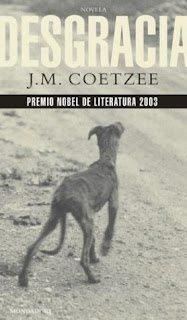

It’s a book about social change, history, justice, and the growing irrelevance of men like Lurie to society at large. There’s a sense of creeping horror as Lurie’s life unravels, building up to the low-key but disturbing ending. Though Disgrace is a quick read, it’s not an easy one. All things considered, it’s incredible that the book is only 220 pages. The technical assurance on display is seriously impressive, undoubtedly contributing to his subsequent awarding of the Nobel Prize for Literature. There’s a simplicity to it that belies the novel’s complex themes. It’s a disquieting portrait of how power relations intersect and the many different forms oppression can take.Ĭoetzee’s prose is understated and exact, lending a quiet weight to this seemingly small-scale story that gives it palpable dramatic force. What Coetzee does address is gender, drawing parallels between Lurie’s own mistreatment of women and the black youths who attack the smallholding. While race isn’t by and large addressed explicitly, it’s Lurie’s whiteness that sets him out in his new surroundings.

Lurie moves from the affluent, urban, predominantly white Cape Town to the impoverished, rural, predominantly black Eastern Cape, which sets the tone of the conflict to come. The 1990s marked the end of apartheid in South Africa, and this historical shift is one of the novel’s central concerns. However, Coetzee draws out his nuances and complexities so that we as readers are able to understand and even sympathise with him, especially as he is changed by experiences on his daughter’s ranch.

In the liberal culture of the university, he’s a dinosaur, and in many ways his days were numbered. He is unrepentant of his relationship with a student, looks down on his daughter for her life choices, and is a cultural snob. Lurie is a repellent but fascinating character. For a time, he is able to rest and recuperate, but a sudden attack changes the course of their lives and relationship forever. After pressuring a student into sex, he is dismissed from his post and goes to live with his daughter Lucy on a small farm. The story follows David Lurie, an academic teaching English Literature at Cape Town University.


 0 kommentar(er)
0 kommentar(er)
